Botox Injections in Tunisia
Search and Compare the Best Clinics and Doctors at the Lowest Prices for Botox Injections in Tunisia

Find the best clinics for Botox Injections in Tunisia
No pricing info available
Indonesia offers the best prices Worldwide
Price: $ 5
Clinic Apollon, can be found in Boulevard Mohamed Bouazizi, Tunis, Tunisia and offers its patients Botox Injections procedures as well as 90 other procedures, across 1 different procedure categories. At present, there is no pricing information for Botox Injections procedures at Clinic Apollon. The pricing information is quite specialised, so it's only available on request. A small team of medical professionals undertake all procedures at the Clinic, with 2 in total, and Clinic Apollon is not accredited by any recognised accreditations institutions.
- Home
- Tunisia
Compare Before & After Photos of _procedure_photos.phpBotox Injections
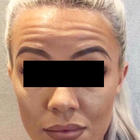
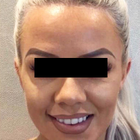
Front view


Half-side view
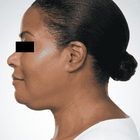
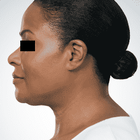
Full-side view


Front view
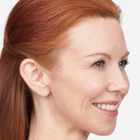

Half-side view
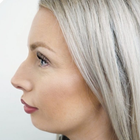
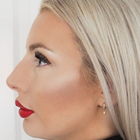
Full-side view


Front view
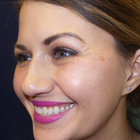
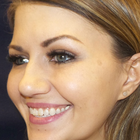
Half-side view
WHY US?
At Medijump, we're making medical easy. You can search, compare, discuss, and book your medical all in one place. We open the door to the best medical providers worldwide, saving you time and energy along the way, and it's all for FREE, no hidden fees, and no price markups guaranteed. So what are you waiting for?

Free

Best Price

Widest Selection

Risk-Free
What you need to know about Botox Injections in Tunisia
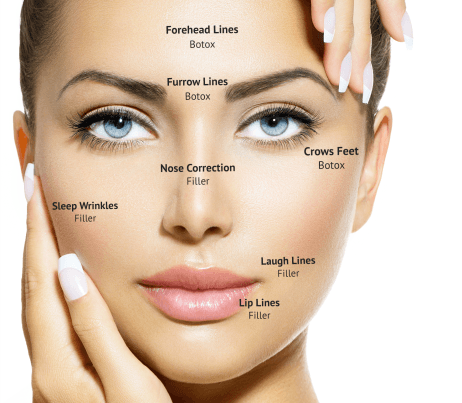
In order to gain an all-encompassing understanding of Botox Injections in Tunisia, conducting thorough research before scheduling a procedure is vital. Botox Injections is commonly pursued to achieve youthful benefits by utilizing a purified form of botulinum toxin to relax facial muscles, effectively diminishing wrinkles, fine lines, and age-related creases.
Although generally safe, the procedure might lead to temporary bruising or slight sagging of the eyelid or eyebrow. However, these minor risks can be avoided by consulting a skilled and reputable professional in Tunisia. To access more in-depth information on the procedure, turn to reputable health resources like WebMD for extensive insights.
What is the cost of Botox Injections in Tunisia?
The price of a Botox Injections in Tunisia depends on several aspects, such as the particular clinic, the practitioner's expertise, and the size of the treatment area. As a result, there might be a considerable difference in costs. Nevertheless, prioritizing a high-quality procedure guarantees minimal risks and excellent outcomes; hence, it is vital for patients to obtain several price estimates to determine a reasonable value.
What does a Botox Injections Procedure Involve?
A Botox Injections entails administering a small quantity of botulinum toxin into select muscles underneath the skin. This results in the targeted muscles becoming relaxed, consequently reducing the visibility of wrinkles and fine lines.
Generally, the entire procedure takes approximately 15 to 30 minutes, contingent on the area being treated. Patients may experience mild discomfort, similar to a gentle pinch, during the process. Comprehensive information about the procedure specifics can be found at the Mayo Clinic.
How Long Should I Stay in Tunisia for a Botox Injections Procedure?
The Botox Injections does not necessitate any recovery time, and most individuals can continue with their regular routines without interruption post-treatment. However, it's generally advised to remain in Tunisia for a few days following the procedure to relax and let nominally common side effects like swelling or bruising dissipate. A follow-up consultation with the healthcare provider can be beneficial to examine the outcome and carry out any required alterations.
In Tunisia, there's an abundance of renowned clinics conducting Botox Injections. These establishments not only render excellent care but also accommodate a tranquil environment where an individual can comfortably rest before journeying home. An extended stay of a few days enables the patient to enjoy rest and explore the facilities and tourist spots Tunisia purveys, making their medical trip more pleasurable.
What's the Recovery Time for Botox Injections Procedures in Tunisia?
Among the primary advantages of Botox Injections is its swift recuperation period. More often than not, you can carry on with your daily tasks post-procedure, earning it a favorite for "lunchtime" appointments. Still, steering clear of demanding physical activities for 24 hours after the procedure is advised. Mild swelling, bruising, or redness at the injection site are usual side effects but typically dissipate within a few hours or days. It is important to abide by the post-care directions provided by the clinic to expedite recovery and amplify the outcome.
What sort of Aftercare is Required for Botox Injections Procedures in Tunisia?
After a Botox Injections procedure, you will be able to return to your normal activities immediately. However, your provider may advise you to avoid strenuous activities, exposure to strong sunlight, and consuming alcohol for a certain period. This is to ensure that the injected protein does not spread to other areas and only affects the intended muscles.
Patients are advised to avoid lying down or leaning forward for four hours after the treatment, as this could cause the Botox Injections to spread to other areas of the face, causing unwanted effects. It's also recommended to avoid massaging or rubbing the treated area for 24 hours. Insights from Mayo Clinic show that any mild discomfort, swelling, or bruising at the injection site should resolve on its own within a few days.
What's the Success Rate of Botox Injections Procedures in Tunisia?
Botox Injections has garnered international acclaim for its high efficacy, including in Tunisia. When administered by proficient experts, numerous patients witness discernible enhancements in the treated regions, commonly resulting in elevated self-esteem and improved physical appeal. However, akin to every medical procedure, the precise success rate can fluctuate depending on individual response, the competence of the practitioner, and the distinct purpose of the treatment. It is recommended to set realistic expectations and grasp that while Botox Injections yields substantial results, it does not indefinitely eliminate all aging symptoms.
Are there Alternatives to Botox Injections Procedures in Tunisia?
While Botox Injections has become a popular choice for reducing facial lines and wrinkles due to its effectiveness and minimal downtime, it's not the only option. There are several alternatives to consider if you're not sure if Botox Injections is right for you. For example, dermal fillers can also significantly reduce the appearance of wrinkles and add volume to the face.
Laser treatments, chemical peels, and microdermabrasion are other options that can rejuvenate your skin and enhance your appearance. However, as every person is unique, it's best to discuss with your healthcare provider to determine the most suitable treatment for your specific concerns and needs.
What Should You Expect Before and After the Procedure.
Before proceeding with Botox Injections, a preliminary consultation is necessary to evaluate your appropriateness for the treatment and to align your expectations. You should be in general good health and not carrying a baby or nursing. Your provider will review your medical history, and may suggest you cease taking certain medications a few days prior to undertaking the treatment.
Post-procedure, a temporary bruise or mild headache might occur, generally alleviating after a few hours. Your specialist will furnish you with post-treatment guidelines, which commonly advise avoiding rigorous activities and exposure to heat for the first 24 hours after treatment. The entire impact of the treatment will be apparent after approximately two weeks. Routine follow-up consultations are needed to preserve the results since the effects of Botox Injections are fleeting, generally lasting between three to six months.
How safe is Botox Injections?
Botox Injections boasts a considerable history of secure utilization in the aesthetic industry, and has been the subject of extensive research, distinguishing it as one of the most comprehensively examined cosmetic medical procedures. Minor side effects like bruising, swelling, or redness are typical, but they usually subside within a few days. More severe side effects including allergic reactions or muscular weakness are infrequent. To reduce the risk of complications, always ensure your Botox Injections is carried out by a qualified and accredited professional.
Does Botox Injections have long-term effects?
The effects of Botox Injections are mostly of a transient nature, with the majority of individuals seeing the smoothening result last around three to six months. That said, with periodic and steady treatments, some patients might observe a long-term enhancement in their lines and wrinkles as the targeted muscles adapt to relaxation. Persistent treatments of Botox Injections can educate facial muscles to contract less, thereby diminishing wrinkle visibility over time.
Though Botox Injections isn't a remedy for the root causes of these lines and doesn't halt the aging process, its regular application can considerably decelerate the visible aging signs. Always engage in a consultation with your healthcare provider for personalized guidance.
Whilst the information presented here has been accurately sourced and verified by a medical professional for its accuracy, it is still advised to consult with your doctor before pursuing a medical treatment at one of the listed medical providers
No Time?
Tell us what you're looking for and we'll reachout to the top clinics all at once
Enquire Now

Popular Procedures in Tunisia
Prices Start From $111

Prices Start From $16

Prices Start From $220

Prices Start From $74

Prices Start From $340

Prices Start From $101

Prices Start From $53

Prices Start From $278

Recommended Medical Centers in Tunisia for Botox Injections

- Interpreter services
- Translation service
- Religious facilities
- Medical records transfer
- Medical travel insurance
- Health insurance coordination
- TV in the room
- Safe in the room
- Phone in the room
- Private rooms for patients available

- Interpreter services
- Translation service
- Religious facilities
- Medical records transfer
- Medical travel insurance
- Health insurance coordination
- TV in the room
- Safe in the room
- Phone in the room
- Private rooms for patients available

- Interpreter services
- Translation service
- Religious facilities
- Medical records transfer
- Medical travel insurance
- Health insurance coordination
- TV in the room
- Safe in the room
- Phone in the room
- Private rooms for patients available

- Interpreter services
- Translation service
- Religious facilities
- Medical records transfer
- Medical travel insurance
- Health insurance coordination
- TV in the room
- Safe in the room
- Phone in the room
- Private rooms for patients available

- Interpreter services
- Translation service
- Religious facilities
- Medical records transfer
- Medical travel insurance
- Health insurance coordination
- TV in the room
- Safe in the room
- Phone in the room
- Private rooms for patients available

- Interpreter services
- Translation service
- Religious facilities
- Medical records transfer
- Medical travel insurance
- Health insurance coordination
- TV in the room
- Safe in the room
- Phone in the room
- Private rooms for patients available

- Interpreter services
- Translation service
- Religious facilities
- Medical records transfer
- Medical travel insurance
- Health insurance coordination
- TV in the room
- Safe in the room
- Phone in the room
- Private rooms for patients available

- Interpreter services
- Translation service
- Religious facilities
- Medical records transfer
- Medical travel insurance
- Health insurance coordination
- TV in the room
- Safe in the room
- Phone in the room
- Private rooms for patients available

- Interpreter services
- Translation service
- Religious facilities
- Medical records transfer
- Medical travel insurance
- Health insurance coordination
- TV in the room
- Safe in the room
- Phone in the room
- Private rooms for patients available

- Interpreter services
- Translation service
- Religious facilities
- Medical records transfer
- Medical travel insurance
- Health insurance coordination
- TV in the room
- Safe in the room
- Phone in the room
- Private rooms for patients available
Botox Injections in and around Tunisia
About Tunisia
Tunisia is one of the few countries which can cater to everyone and it manages to combine climate, golden beaches, history, and shopping for an “all-around” experience. It has a high standard of healthcare and an excellent reputation for cosmetic surgery. Cosmetic and plastic surgeons are regulated by the Tunisian Ministry of Health and the private clinics have state-of-the-art equipment and English-speaking staff. Tunisia welcomes an ever-increasing number of medical tourists each year, many of whom travel for Botox Injections procedures. Medical Tourists travel from all across the globe, particularly from Europe and neighboring African countries with an inferior healthcare system. Popular medical tourism destinations outside of the capital, Tunis, include Sousse and Mahdia
Popular Parts of Tunisia
- Tunis, the country’s capital, is overflowing with a history that dates from the 4th Century BC. The city is divided into two parts, the old city known as the medina and the new city (or Ville nouvelle in French). Many tourists visit Tunis to see the Archaeological Site of Carthage which is also a UNESCO World Heritage Site. The beautiful Islamic architecture in medina also attracts many tourists to the city.
- Tozeur is known as a home to an enchanting desert oasis, which was a place to rest and refuel for caravans crossing the Sahara. Another main attraction in the city is the medina, where tourists can find lines of beautiful brick-patterned traditional dessert houses. Chott el Djerid, Sahara’s largest salt pan, is a popular day-trip destination.
- Sousse is located on the coast of the Mediterranean Sea. It offers good beaches with a clear blue sea. The city has been fought over by the Romans, Arabs, and Europeans, giving it a colorful history and culture. Sousse Archeological Museum is one of the most visited sites in the country; it has the second largest collection of mosaics in the world.
- Hammamet is the country’s original tourism resort. The city has beautiful gardens filled with oranges, lemons, and other citrus plants. It also has wonderful sandy beaches with crystal clear water. Just like any other city in Tunisia, this city is also brimming with interesting histories. Sites such as The Gafsa Museum and Bardo Museum will give insights about the Islamic faith and culture.
- Douz, also known as “the gateway to the Sahara.” Tourists who want to experience the Sahara Desert come to this city. Take a camel trip or a 4-wheel-drive into the Sahara or see the Museum of the Sahara that has an interesting collection portraying traditional Saharan life.
Weather and Climate in Tunisia
The North of Tunisia has a subtropical Mediterranean climate with mild rainy winters and hot summers. The South and inland areas have a tropical desert climate.
The weather is relatively comfortable throughout the year. Summer starts in June and lasts until August. The average temperature is between 28 °C to 32 °C with July and August being the hottest months. The heat is not as bad on the coast because of the seaside breeze. Be aware that July to September is the jellyfish season.
The heat decreases in autumn and the weather is somewhat more comfortable. There are occasional rain showers in September. The temperature in October can be like summer during day time, but cold at night. October has more rain than September. The season lasts for three months from September to November with an average temperature of around 19 °C to 29 °C.
The weather in winter can be uncertain. The average temperature is between 16 °C and 18 °C, but it can drop to 7 °C at night and below 0 °C in highlands and deserts and a clear sky is rare during this season.
Spring comes in March and the temperature can rise to 20 °C. Mornings and nights are cold; there is still a high probability of rains and thunderstorms at the end of this season.
Getting Around in Tunisia
Tunisia has several international airports. The main airport is Tunic-Carthage International Airport. It has international connections with major European countries and the Middle East. The airport is the hub for Tunisair, Tunisair Express, and Nouvelair. Other airports that have international flights are Enfidha-Hammamet, Monastir Habib Bourguiba, Djerba-Zarzis, and Tabarka-Aïn Draham.
Taxis and buses are available to get to the city center from Tunis Airport. The SNT bus line departs every 30 minutes from the airport, the ticket costs less than 1 TND. There is also the TUT bus which departs every 15 minutes and is more luxurious and expensive.
Airport taxis are available at the airport taxi stand and are usually metered. Always make sure that the driver turns the meter on before riding the taxis. A journey to the city should cost around 5 TND. An extra cost will be added if you have baggage.
Getting around in Tunisia can be done by several transportation modes. Tunisair Express provides domestic flights between Tunis, Tozeur, Djerba, and Gabes. The Train is also available and the national train company in the country is SNCFT that runs modern and comfortable trains from Tunis to Sousse, Sfax, and Monastir. There are three classes of service that tourists can choose. The fare from Tunis to Sousse is between 6 to 10 TND. The long-distance bus is an economical option to travel between big cities such as Tunis, Hammamet, and Nabeul. The buses usually depart every 30 minutes.
Tourist Visas in Tunisia
Citizens of 97 countries (including Australia, China Singapore, the United States, and Russia) can visit and stay in Tunisia for up to 90 days without a visa. Other nationalities are advised to check with their local Tunisia embassy. Tunisia provides an online visa application for nationalities that needs a visa to enter. The eVisa will simplify the process of obtaining travel authorization to enter the country.
Additional Information
-
Local Currency: the local currency is the Tunisian dinar (TND). 1 USD converts to 2.61 TND.
-
Money & Payments: ATMs can be found in most cities and in all tourist areas. Many ATMs have withdrawal limits of 400 TND. Credit cards (MasterCard and Visa) are accepted in major cities and tourist areas. They can be used for shops, car hire, or top-end accommodation. Always make sure to carry cash if you want to travel outside major cities. Tipping is not necessary but will be appreciated.
-
Local Language: Arabic is the official language of Tunisia. French is very common due to the country’s former status as a French protectorate. English is still very limited except in the tourist areas and expensive hotels.
-
Local Culture and Religion: Islam is the major religion with 98% of the population identified as Muslim. There is a small group of Christian and Jews. Since most of the population is Muslim, always remember that the dress code is important in Tunisia.
-
Public Holidays: Tunisia celebrates major Islam holidays. The country hosts several annual festivals throughout the year such as The International Festival of the Sahara, Yasmine Hammamet Festival, and the International Festival of Carthage.
Popular Searches
- Plastic Surgery in Thailand
- Dental Implants in Thailand
- Hair Transplant in Thailand
- Breast Augmentation Thailand
- Gastric Sleeve in Thailand
- Gender Reassignment Surgery in Thailand
- Laser Hair Removal in Bangkok
- Botox in Bangkok
- Dermatology in Bangkok
- Breast Augmentation in Bangkok
- Coolsculpting in Bangkok
- Veneers in Turkey
- Hair Transplant in Turkey
- Rhinoplasty in Turkey
- Stem Cell Therapy in Mexico
- Rhinoplasty in Mexico
- Liposuction in Mexico
- Coolsculpting in Tijuana
- Rhinoplasty in Korea
- Scar Removal in Korea
- Gastric Sleeve in Turkey
- Bone Marrow Transplant in India
- Invisalign in Malaysia
- Plastic Surgery in the Dominican Republic
- Tummy Tuck in the Dominican Republic
- Plastic and Cosmetic Surgery in Poland
- Rhinoplasty in Poland
- Hair Implant in Poland
- Dental Implants in Poland
- IVF in Turkey
